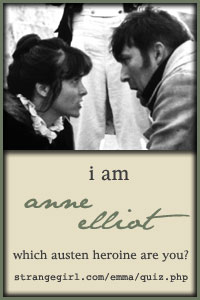I'm mystified by a note I
jotted to myself not long ago, apparently only a month or two, or
less— "Western Philatelic Library, Spring St." And longer ago, maybe right after our visit
to Torre del Lago, Puccini's villa, maybe even on the train back to Lucca where
we were staying, coming as it does a page after my detailing the lake, the few
shorebirds, the ferry with the name of the tragic heroine Manon Lescaut—"Ruth
and the Alien Corn." No connection
I can now see.
Looking up Ruth, I find her
in Biblical references and the Keats poem, Ode
to a Nightingale—the latter more likely to have called me.
Perhaps the selfsame
song that found a path
Through the sad heart
of Ruth, when, sick for home,
She stood in tears amid
the alien corn . . .
But the words ring no bells, especially, and I find no images by
favorite artists, no compelling links.
Okay, though—in the context
of the page, it's coming back. Alien
things, I think, for a notebook project.
Women in foreign lands—Ruth, Aliena in The Tempest; lost languages—Nahuatl, Linear A; losing one's nouns
in old age; old age itself as a foreign country. Being alienated from oneself. The placement in the notebook means nothing;
I'm in the (bad) habit of opening notebooks at random, whichever comes to hand,
and jotting things in empty spaces, no regard for time or continuity.
But why, oh why, the
Philatelic Library, in Sunnyvale or Redwood City? Especially on a list of things to do? Did I intend to visit, and if so, why?
I once devised a writing
exercise that has over the years given interesting, unexpected little
stories. I called it Triplets; it
involves choosing three words at random—the randomer the better, and working
them all into a sentence, or a paragraph, and then seeing what follows. (Here and here are some examples, in a later four-word
version of the prompt.)
I could try that here, with
Ruth and the stamp library, and somehow at the heart of the mystery (which I
must solve, having created it), the lake where the Italian composer rode in a
motorboat with friends and hunted ducks and finally smoked himself to death,
leaving his final opera, which contained a triplet of riddles, unfinished. What of that is relevant? What resonates? What did I want to say, and what if anything
is left of what I was feeling on the train that October and in the patio this
March and hoping to remember?
Here goes a first attempt—
Every morning Connie passed
the intersection with the shoe store and the meat market and the small shop
offering to repair joy (as she chose to translate the Spanish in its window, reparacion de joyas), on her way to work
at the Western Philatelic Library on Spring Street. She felt as out of place and sad of heart in
Redwood City as Ruth had in Bethlehem among the alien corn, and often thought
about stopping to have her joy repaired.
Only she'd left it half a
world away, in the walled garden with the ancient cat and orange tree in Pisa
where Adrian was helping to install the exhibition of Modigliani paintings in
the blue palace along the river. She had
remembered it too late, feeling a sense of loss stronger than gravity even as
the plane obdurately rose from the runway at the airport named for Galileo, the
astronomer who had discovered gravity, there in that very town.
Pisa hadn't been
planned. She'd left her steady research into
stamps and postal history and gone to Italy to find her wayward mother, bring
her home, undo the spell of the long lake with waterbirds where Maya in her dotage
was being done surely, quickly out of her savings by the much younger unscrupulous
tenor (as they all tended to be) who led tours through the composer's villa by
day and sang his beautiful heartbreaking arias by night in Lucca's church lit
wholly or in part by olive oil. And when
her mother refused to be brought home, and Adrian came up to Connie (desperate
for lake air) on the ferry named for one of the composer's tragic heroines,
Manon Lescault, lissome and full of life, she'd changed course easily as the
water ahead of the flat sturdy boat. But
it hadn't lasted—she'd panicked, and she'd fled. And then she'd panicked to have fled, finding
herself back where she'd started, only far from herself and from home.
. . .
So it shall go!
image: Ruth




















No comments:
Post a Comment